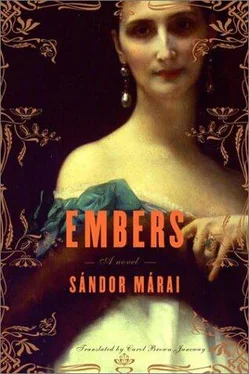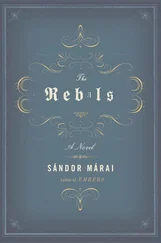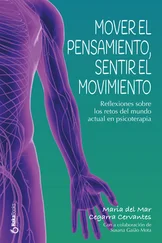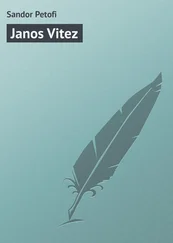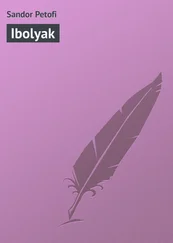None of it interests me anymore, I have no desire to know the truth about your relationship, any of the details, the ” and the ‘.”
I do not care. Between any two people, a woman and a man, the ” and the ” are always so lamentably the same … the entire constellation is despicably straightforward. ” and ‘ that’-something could happen, something did-that is what makes the truth. Finally, there is no sense in investigating the details. But one has an obligation to seek out the essentials, the truth of things, because otherwise, why has one lived at all? Why has one endured these forty-one years? Why, otherwise, would I have waited for you-not in your guise of a faithless brother or a runaway friend but in mine of both judge and victim, expecting the return of the accused? And now the accused is sitting here, and I pose my question, and he wishes to answer. But, have I posed it correctly, have I said everything he needs to know, as both perpetrator and accused, if he is to speak the truth? Because, you know, Krisztina gave her own answer, and I don’t mean the act of dying.
“One day, years after her death, I found the diary bound in yellow velvet that I had searched for that night-the night after the hunt that was the turning point in your life-in the drawer of her desk. The book had vanished, you left the next day, and I never exchanged a word with Krisztina again. Then she died. You were living in some far-off place, and I was living here in this house, because after her death I moved back so that I could live and die in the rooms where I had been born and where my ancestors had lived and died before me. That is how it will be, for things have a rhythm and order of their own, regardless of our wishes. And even the book in its yellow velvet binding, Krisztina’s strange ‘ of honor’ with its alarming evidence of her inner self and her love and her doubts, went on living in its mysterious way, right out there in the open. It lived on, and I found it one day, much later, among her things, in a box in which she had put the ivory miniature of her mother, her father’s signet ring, a dried orchid that I had given her, and this little book tied in a blue ribbon and sealed with her father’s ring.
“Here it is,” he says, pulling it out of his jacket and holding it out to his friend. “This is what remains of Krisztina. I have never cut the ribbon, because she left no written authorization for me to do so, and so I had no means to know whether her confession from the other side of the grave was addressed to me or to you. It is to be assumed that the book contains the truth, because Krisztina never lied.” His voice is severe, and respectful.
But his friend does not reach for the book. Head in hands, he sits motionless, staring at the thin, yellow-velvet-bound book with the blue ribbon and the blue-wax seal. His body is absolutely still; not even an eyelid flickers.
“Would you like us to read Krisztina’s message together?” asks the General.
“No,” says Konrad. “Would you not like to, or would you not dare to?”
the General says with the cold arrogance of a superior officer addressing his junior.
Their eyes meet over the book and stay locked. The General keeps holding it out to Konrad, and there is no tremor in his hand. “I decline to answer this question,” says the guest. “I understand,” says the General, and in his voice there is a strange hint of satisfaction.
With an almost lazy gesture, he throws the little book into the embers of the fire, which begins to glow darkly as it receives its sacrifice, then slowly absorbs it in a welling haze of smoke as tiny flames lick up out of the ashes. They sit and watch, still as statues, as the fire comes to life, flares as if in pleasure at the unexpected booty, then begins to pant and gnaw at it until suddenly the flames burst upwards, the wax seal is melted, the yellow velvet burns in an acrid cloud, and the pages, aged to the color of ancient parchment, are riffled by an unseen hand; there, suddenly, in the blaze is Krisztina’s handwriting, the spiky letters once set on paper by fingers now long since dead, and then letters, paper, book, all turn to ashes like the hand that once inscribed them. All that is left in the embers is ash, black ash, with the sheen of a mourning veil of watered silk.
They watch, wordless, the play of light on the blackness of the ash.
“And now,” says the General, “you may answer my question. There are no witnesses anymore who could testify against you. Did Krisztina know that you wanted to kill me that day in the forest? Will you give me an answer?”
“No, I shall no longer answer that question either,” said Konrad.
“Good,” says the General dully, almost with indifference.
The room is now cold. It is not yet daybreak, but the half-open window admits a breath of dawn air, fresh, carrying a faint hint of thyme. The General shivers as he rubs his hands. It is the hour before sunrise, and both men look suddenly ancient, as yellowed and bony as the rattling inhabitants of a charnel house.
With a mechanical gesture, the guest abruptly raises his hand and looks in exhaustion at his wristwatch.
“I think,” he says softly, “that we have talked about everything that needed to be talked about. It’s time I went.”
“If you would like to go,” says the General politely, “the carriage is outside.”
Both men get to their feet and move spontaneously toward the fireplace to warm their thin hands at the embers of the dying fire. Only now do they become aware of how cold they are: the night has been unexpectedly chilly and the storm that extinguished all the lights in the nearby power station passed very close to the castle.
“So you are going back to London,” says the General, almost to himself.
“Yes,” says the guest. “You are going to live there?”
“Until I die.”
“Yes,” says the General. “Of course. Would you not care to stay until tomorrow? Have a look at things? Meet someone? You haven’t seen the grave. Or Nini, indeed,” he adds politely. He speaks haltingly, as if seeking the right words for his farewell but failing to find them. But his guest remains calm and cordial.
“No,” he says politely. “There is nothing, and no one, that I wish to see. Please give my regards to Nini.” “Thank you,” says the General, and they go to the door.
The General reaches for the handle, and they stand facing each other as social politeness demands, a little stooped, ready to say their farewells. Both take a last glance around the room, as if knowing that neither of them will ever set foot in it again. The General blinks, and seems to be looking for something.
“The candles,” he murmurs distractedly as his glance falls on the smoking stubs in their holders on the mantel. “Look at that, the candles are burned right down.” “Two questions,” says Konrad abruptly, his voice flat. “You mentioned two questions. What is the other one?”
“The other one?” They are leaning toward each other like two accomplices afraid of the night shadows and hidden listeners in the dark. “The second question?” the General repeats in a whisper. “But you haven’t answered the first one yet … Look, Krisztina’s father’s reproach was that I had survived. What he meant is that things always survive. One doesn’t answer only with one’s death, although that is a perfect answer.
One also answers with one’s life. Both of us survived her. You, by leaving; I, by staying. Out of cowardice or obliviousness, calculation or grievance, we survived. Do you think we were justified? Don’t you think we have a responsibility to her beyond the grave, because she in her humanity amounted to more than the two of us put together? More, because she died, thereby answering to us, whereas we lived on, and there’s no way to prettify that.
Читать дальше
